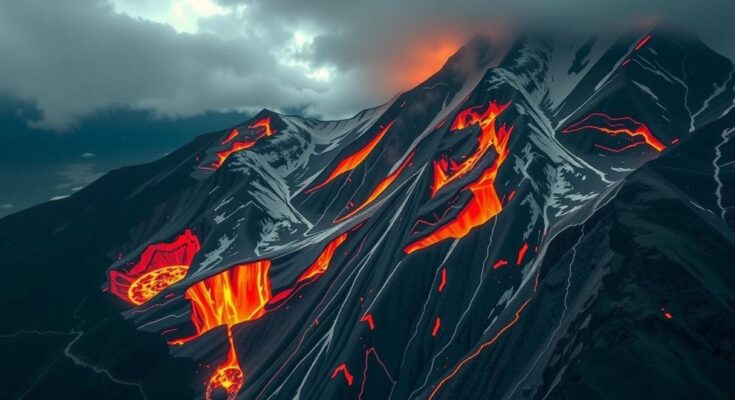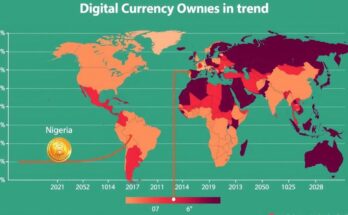A mountain collapse in the DRC has unveiled substantial copper reserves, leading to discussions on colonialism and the need to protect national resources from foreign exploitation. Footage of the incident has gone viral, prompting social media calls to restrict access to the country, emphasizing the significance of copper amidst the global push for renewable energy.
A recent mountain collapse in the Democratic Republic of Congo (DRC) has uncovered vast copper deposits, igniting a conversation about colonial legacies and foreign exploitation of natural resources. The dramatic incident, filmed in the mineral-rich Katanga region, has gone viral, eliciting jokes and concerns about protecting these valuable resources from outside interests. Footage shows crowds witnessing the collapse, with some nearby fleeing as boulders fell around them. Copper is among the DRC’s most significant natural resources and is predominantly found in the Katanga province, known for its high-grade deposits and efficient production costs. This region is part of the Central African Copperbelt, the largest and most lucrative mineral-rich area globally. In addition to copper, the DRC is rich in cobalt, uranium, tin, and zinc, making it a critical player in various global supply chains, particularly amidst growing demand for sustainable energy solutions and electric vehicles. The viral nature of the footage has prompted a wave of reactions on social media. Users have called for the DRC to safeguard its resources by banning foreign access to the nation. One comment humorously suggested, “Hello continental Europe, UK, USA, China – keep your filthy hands away. This belongs to Congo people.” Another remarked about the necessity of preventing western influence on the country’s valuable mines, indicating both a protective sentiment and a critique of historical exploitation. Concerns were also raised about the natural causes of the collapse, with suggestions it may have resulted from extensive mining operations rather than geological factors.
The Democratic Republic of Congo is renowned for its considerable mineral wealth, particularly its copper reserves, which are integral to the global market. Copper plays a crucial role in various industries, especially with the increasing emphasis on renewable energy and electric mobility. This context underlines the importance of the recent mountain collapse in Katanga, an event that not only revealed natural resources but also reignited discussions about the legacies of colonialism and the rights of local populations to control their resources. The DRC’s experience with foreign exploitation of its minerals has led to a complex and often fraught relationship with international companies and governments, which makes this incident particularly significant.
The mountain collapse in the DRC highlights both the country’s immense natural resource potential and the ongoing debate surrounding foreign intervention and exploitation. As the world pivots towards greener technologies and increased demand for copper, the DRC must navigate its resource management to ensure that its wealth benefits its citizens. The online dialogue surrounding this incident reflects a broader desire for sovereignty over national assets and an end to historical injustices linked to colonialism. The event serves as a poignant reminder of the need to balance resource exploitation with national interests and ethical considerations.
Original Source: www.hindustantimes.com




